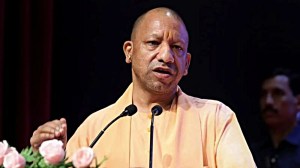`We’ve to expand the peace zone, NSCN’s letter to PM is positive’
K. Padmanabhiah, the Prime Minister's principal negotiator with the NSCN(I/M) has been doing a tightrope act, negotiating between Naga lea...

K. Padmanabhiah, the Prime Minister’s principal negotiator with the NSCN(I/M) has been doing a tightrope act, negotiating between Naga leaders and the Prime Minister’s Office. Padmanabhiah, who managed to secure an extension of the three year-old cease-fire from the rebels, spoke to SWATI CHATURVEDI on NSCN(I/M) leader T.H. Muivah’s release and a possible parallel between the Naga peace talks and Kashmir.
What’s after Muivah’s release?
MUIVAH’S release is a judicial decision taken by Thailand’s courts. As a negotiator, I would say it’s always good to talk to the top man as it speeds up the process. Since the talks have to go on, I welcome his release.
Yet, despite three former PMs appealing for his release, the Indian government couldn’t get Muivah out?
The Indian government had nothing to do with Muviah’s arrest, so there was really no case for it to get involved or intervene.
You have been talking to the Naga leaders for four years now. When do you see a breakthrough happening?
Nobody can put a time-frame for this thing. This issue goes back even before independence. There were a number of agreements in the 40s and later, the 60s. The state of Nagaland was created by the 15-point agreement, but this did nothing to solve the problem. The cease-fire, however, will bring tremendous peace to the state. It is relative peace, but the amount of violence has come down to a third.
What are the contentious issues then?
The contentious issue as far as the cease-fire was concerned was its extension beyond Nagaland. The NSCN was repeatedly using the word `Naga areas’, a vague, politically sensitive term. Other states were worried about what they meant.
Were they trying to score a political point?
They were. We had to tell them clearly that it is in our interests to expand the area of peace in the North-east, that they were not getting Greater Nagaland. The response has arrived in the form of a letter addressed to the PM. All I can say is that the response is positive.
There is confusion over the main players in the dialogue the Home Ministry, the Intelligence Bureau and the PMO with the NSCN saying that they will only negotiate with the PM.
The nscn knows that nothing happens without the PM’s concurrence. It’s a question of protocol. The Intelligence Bureau has played a key role in the talks as a facilitator.
Is there a parallel between the Naga talks model and Kashmir negotiations?
As along as it is within the Indian union, it has to be understood that be it Nagaland or Kashmir, during the GOI’s talks with underground groups, there is bound to be some amount of unease.
The feeling is, why can’t you hold talks in Kashmir if you are willing to give everything short of sovereignty to the Nagas.
Well, you can certainly draw a parallel. The important thing is to talk. And, see what emerges.
What about the fact that the Constitution is sacrosanct and talks have to be held within its boundaries?
I do not want to put any pre-conditions to ongoing talks. When talks have started, why are you raising this question over the Constitution? What is necessary is the Indian union. When you say `within the Constitution’, are you talking of the Constitution as it exists today or the one that existed 20 years ago or the one that might come into being in five years? The Constitution changes.
Where do you see the cease-fire going?
Well, it’s the longest operating cease-fire since it’s been on for three years. We have just got it extended for another year. A major breakthrough has been the fact that the area of the cease-fire would be extended beyond Nagaland.
But there has been controversy over this.
There was never a controversy. These people have been saying that the leadership is one, the organisation is one, the cadre is one, they take their diktats from one person. So how could you have a cease-fire with one faction of the NSCN(I/M)? You cannot have a piecemeal cease-fire.
So how do you handle it?
The problem is to convince the various state governments. Ultimately, there has to be a monitoring group on the ground. There would always be incidents precipitated either by the NSCN or the armed forces, so we’d need a monitoring group which involves the states.
But the NSCN is emphatic that the cease-fire is between it and the Centre.
No, it just cannot be between the NSCN and the Centre.
The major decision on whether to talk to the militants or not may be the Centre’s prerogative, but even there, one has to consult the state governments since the negotiations impact on them.
But state governments complain that they are not consulted.
That’s not true.
In the case of Nagaland, they are fully aware that when the peace process started, the state government was consulted.
Photos


- 01
- 02
- 03
- 04
- 05





























